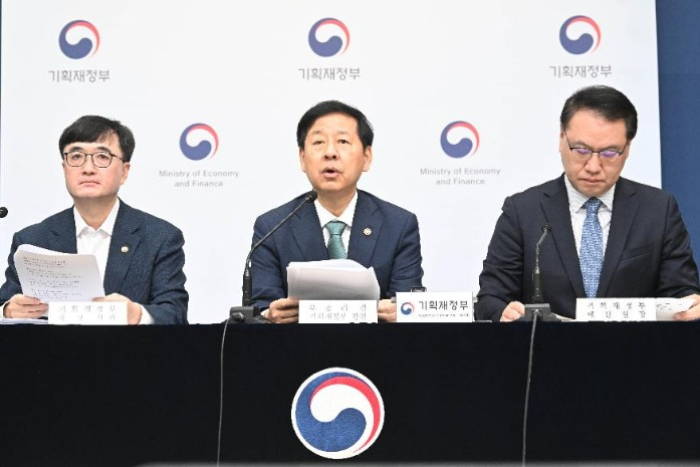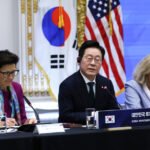
South Korea’s government and ruling Democratic Party on Thursday scrapped a sweeping plan to reform the nation’s financial authorities, opting instead to keep the Financial Services Commission (FSC) and the Financial Supervisory Service (FSS) intact.
The decision marks a sharp reversal from proposals unveiled only weeks earlier to dissolve the FSC, the country’s top financial regulator for the past 17 years, and fold its functions into a reconstituted Financial Supervisory Commission.
Under that blueprint, the FSC would have ceded financial policy to the Ministry of Economy and Finance, while the FSS would have continued day-to-day oversight and spun off a separate consumer protection watchdog.
Officials said the overhaul plan was dropped from a government reorganization bill headed for a parliamentary vote after industry groups and opposition lawmakers warned that splitting responsibilities among as many as four institutions would sow confusion and weaken crisis response.
The plan also drew immediate backlash from officials at both the FSC and the FSS, who voiced similar concerns.

The opposition People Power Party had vowed to block the measure, raising the risk of months of legislative gridlock amid lingering economic uncertainty.
Still, the government will move ahead with separating the budget-planning function from the finance ministry and transferring it to a newly created Planning and Budget Office.
BUDGET SHIFT LEAVES THE FINANCE MINISTRY WEAKER
The ministry, which had expected to regain control of financial policy under the reform, is now left with only tax policy among the core levers of economic management.
The setback has fueled jitters that the reconstituted ministry could emerge as one of the weakest economic control towers in modern Korean history.
Former officials warned that without budgetary or financial instruments, the ministry’s ability to coordinate policy and respond to crises would be severely undermined.

“In effect, the economic deputy prime minister has been stripped of power,” said a former senior finance official. “It is doubtful that a weaker control tower can steer the economy through such a difficult period.”
On Thursday, the finance ministry said in a statement that it would continue to serve as the government’s economic command center and coordinate closely with fiscal and financial authorities.
Internally, however, officials described the atmosphere as grim.
“We have lost both the budget and financial policy,” said one finance ministry official. “It will be harder to secure cooperation from other agencies, let alone set the direction of economic policy.”
The FSC itself was established in 2008, when financial policy was shifted from the finance ministry to the commission. At the same time, budget authority was consolidated under the ministry after the Ministry of Planning and Budget was abolished.
Reform advocates had argued that the latest shake-up would realign responsibilities more efficiently and bolster oversight.
The debate over restructuring the financial oversight system, however, isn’t over.
Some officials say the Democratic Party could revive the plan during negotiations to form the latter half of the 22nd National Assembly next June, if it secures the chairmanship of the parliamentary finance committee.
By Hyeong-Gyo Seo, Hyung-Chang Choi and Ik-Hwan Kim
seogyo@hankyung.com
Sookyung Seo edited this article.















